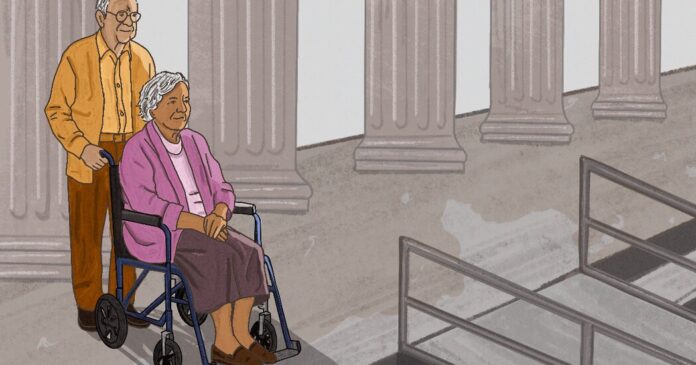Millions of older Americans live with chronic health conditions that significantly limit their daily lives, yet stubbornly refuse to identify as “disabled.” This reluctance, rooted in cultural norms and personal pride, has profound implications for healthcare access, social support, and even personal well-being. A recent University of Michigan survey reveals a stark disconnect: while nearly half of those over 75 report difficulty with basic functions like walking, hearing, or concentrating, fewer than 18% consider themselves disabled.
The Generational Divide
This resistance isn’t simply about denial; it’s deeply embedded in the attitudes of older generations. Before landmark legislation like the Americans with Disabilities Act (ADA) of 1990, disability was often hidden, stigmatized, or simply “toughened through.” Many older adults were raised to believe that seeking help was a sign of weakness. As one 82-year-old woman in California puts it, “I can’t walk very far without pain, but I’ll attempt to surrender as gracefully as possible.”
This mindset is shifting among younger cohorts. Among those aged 50-64 with two or more disabilities, 68% identify as disabled, compared to just half of those over 65. Younger generations are more likely to see disability as part of a community, not a personal failing.
Why It Matters
The refusal to identify as disabled has concrete consequences. Under the ADA, individuals with disabilities are legally entitled to accommodations in healthcare, employment, and public spaces. These include accessible examination tables, amplified hearing devices, and assistance with mobility. Yet, many older adults don’t ask for these accommodations, either out of pride, ignorance, or the belief that they can “manage.”
This reluctance also impacts mental health. Studies show that disabled individuals who identify as such report lower levels of depression and anxiety, higher self-esteem, and greater self-efficacy. Recognizing one’s limitations and seeking support can be empowering.
The System Fails Too
Even when older adults do request accommodations, enforcement of the ADA remains spotty. Many healthcare providers don’t proactively offer assistance, and patients often don’t report violations. This systemic failure reinforces the stigma and discourages others from speaking up.
Changing the Narrative
Overcoming this resistance requires a cultural shift. Younger generations must continue to normalize disability as a natural part of life. Healthcare providers must proactively offer accommodations, and policymakers must strengthen ADA enforcement.
The first step, however, is simple: acknowledging that disability isn’t a dirty word. It’s a reality for millions, and embracing that reality is the only way to ensure that everyone has access to the support they need.
In the end, identifying as disabled isn’t about weakness; it’s about self-advocacy, dignity, and the right to live a full and accessible life






































































